
Good morning. It’s Friday, May 13.
| • | A potential disaster on the Sacramento-San Joaquin Delta. |
| • | The Jan. 6 panel issues subpoena to Rep. Kevin McCarthy. |
| • | And Coastal Commission blocks proposed desalination plant. |
Statewide
1

A view of the Sacramento -San Joaquin Delta, with Stockton in the lower right.
Aerial Archives/Alamy
In California, millions of residents and thousands of farmers depend on the Sacramento-San Joaquin Delta for fresh water. Its problems are as dire as those of the Colorado River and its reservoirs with their dramatic “bathtub rings,” but they receive far less attention. Yet if an earthquake caused a major levee failure in the Delta, fresh water would instantly turn to sea water. Here’s a bracing read on “the biggest potential water disaster in the United States.” 👉 New Yorker
2
California’s minimum wage will rise to $15.50 an hour on Jan. 1 after soaring inflation triggered a provision in a state law governing pay increases, officials said Thursday. The minimum wage is currently $15 an hour for large businesses — the nation’s highest — and $14 an hour for small ones. With the surprise adjustment, the new $15.50 minimum will apply to all workers, no matter the company size. L.A. Times | Reuters
3
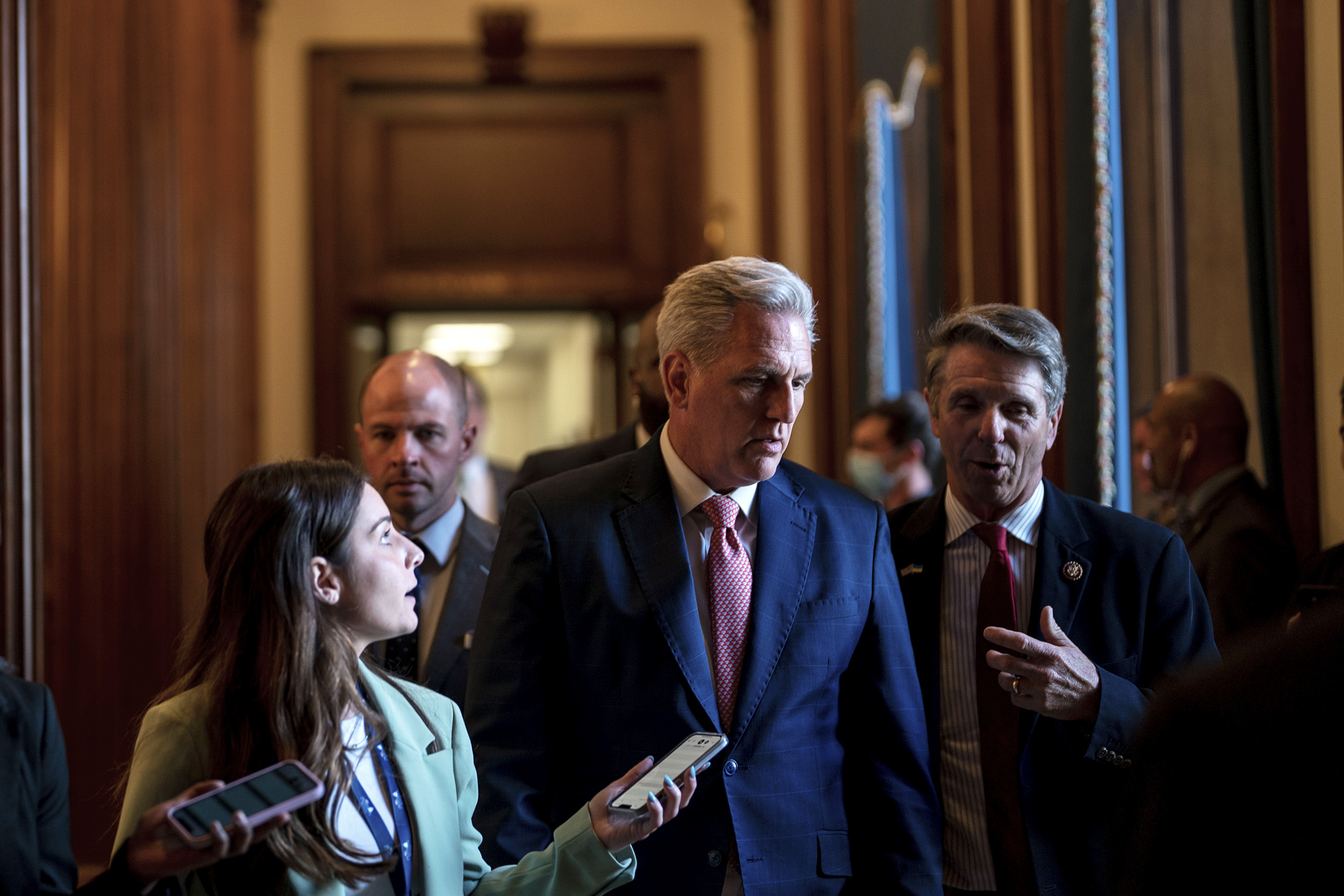
Rep. Kevin McCarthy departed his office on Capitol Hill on April 27.
Kent Nishimura/L.A. Times via Getty Images
The House panel investigating the Jan. 6 attack on the Capitol issued subpoenas Thursday for House Minority Leader Kevin McCarthy and four other Republican lawmakers. The extraordinary step reflected the suspicion that Republicans loyal to President Trump played crucial roles in the events that led up to the siege of their own institution. McCarthy, of Bakersfield, told reporters Thursday that he views the investigation as illegitimate. “It seems as though they just want to go after their political opponents,” he said. N.Y. Times | A.P.
4
A lot of Californians have started new lives in Portugal, attracted by the coastal breezes, hot spring days, mountain views, and the far more affordable cost of living. But the influx of newcomers is generating resentment. The investment has been welcome, said Isabel da Bandeira, an activist in Lisbon, but “this process has also hurt the long-term residents who don’t recognize parts of their communities anymore or can’t afford to live in them.” L.A. Times
Northern California
5
A Pentecostal church in San Jose has emerged as a nexus between the recent kidnapping of a 3-month-old boy and the previously unreported death of a 3-year-old girl in September. According to court records, the girl died after family members starved and asphyxiated her to rid her of “evil spirits.” It was ruled a homicide but never publicized by police. In the April kidnapping, police swarmed the church looking for the boy in the hours after his disappearance. They later arrested two suspects, one of whom attended the church. Mercury News | SFist
6

Native American tribes have been running to protest the damming of the Klamath.
Every year since 2003, Native Americans have run the historic route salmon took along the Klamath River before dams obstructed their path. To call attention to the river’s plight, relay runners cover more than 300 miles in four days — through Hoopa, Karuk, and Klamath lands — from the mouth of the Klamath in Del Norte County to its headwaters in southern Oregon. The 2022 run kicked off Thursday. A short documentary released in advance of the event is gorgeously done. Vimeo (~14 mins)
7
On this week’s California Sun Podcast, host Jeff Schechtman chats with Tripp Mickle, author of the new book “After Steve,” on how Apple changed after the death of Steve Jobs. Mickle writes that Apple workers used to refer to the power of designers with the phrase: “Don’t disappoint the gods.” The company lost its soul, he argues, when its power center shifted from the artists to the technocrats.
Southern California
8
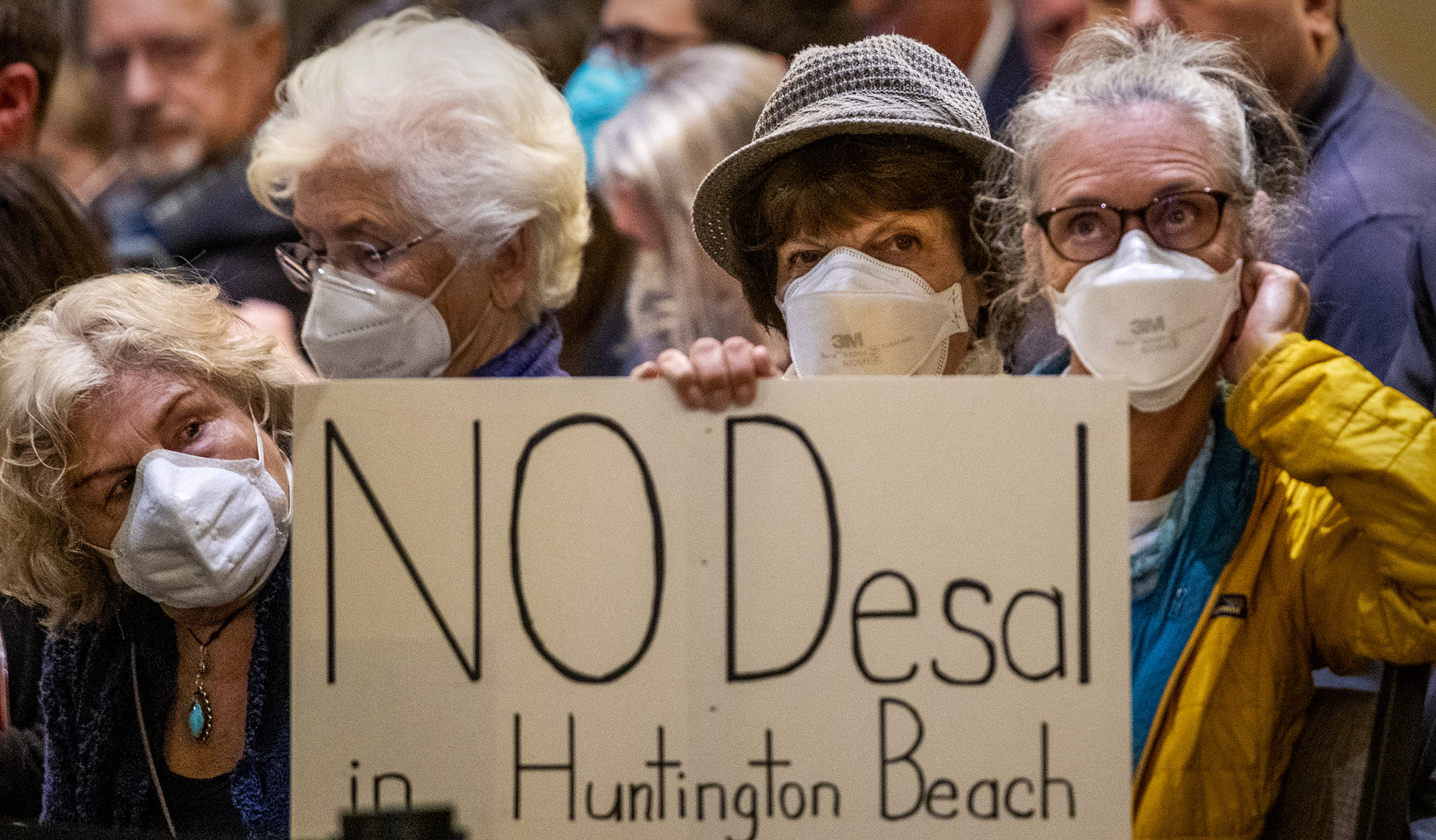
Desalination plant opponents listened to speakers before the vote Thursday in Costa Mesa.
Allen J. Schaben/L.A. Times via Getty Images
The California Coastal Commission rejected a proposed $1.4 billion desalination plant in Huntington Beach on Thursday, killing a project that aroused passionate debate for years. In denying a permit to Poseidon Water, the panel defied Gov. Gavin Newsom, who has argued that the state needs to tap the Pacific in response to persistent drought. But commissioners said the plan would require too much energy and harm too much marine life. CalMatters | A.P.
9
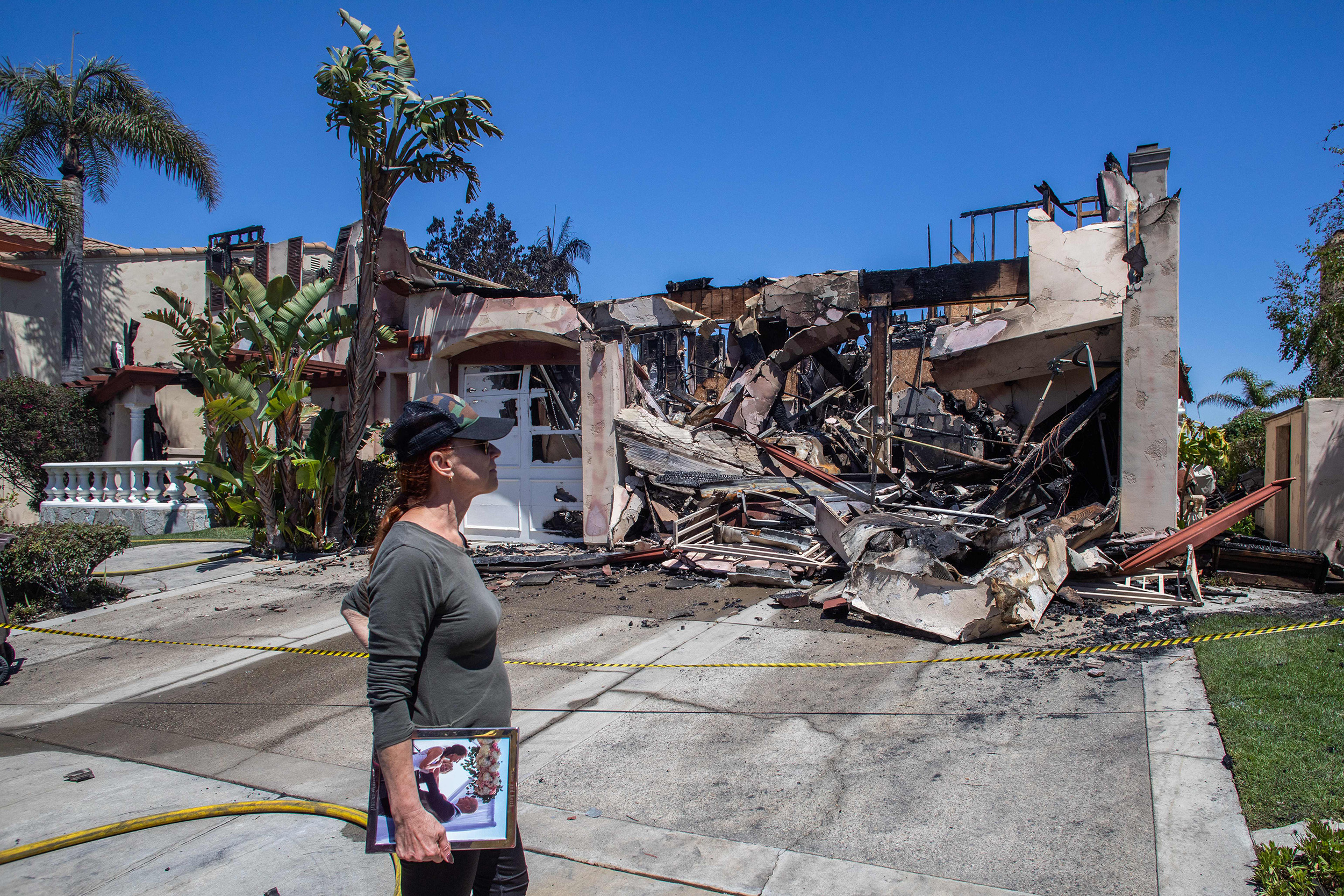
Lynn Morey clutched a wedding portrait in front of her burned home in Laguna Niguel on Thursday.
Apu Gomes/AFP via Getty Images
Southern California Edison said unspecified electrical “circuit activity” was detected around the time a wildfire erupted and turned at least 20 homes in Laguna Niguel to ash. Authorities were working to determine the cause. Residents stood in disbelief as they surveyed the ruins on Thursday. Lynn Morey, 56, recovered only a framed picture of her wedding from the rubble of her home. “This brought some sunshine to my heart today,” she said, clutching it tightly. O.C. Register | L.A. Times
10
Mayor Eric Garcetti’s path to a U.S. ambassadorship in India constricted further this week after Senate investigators shared their findings on sexual harassment allegations against one of Garcetti’s top aides. “Based on witness testimony, this behavior was pervasive, widespread and notorious,” the report found, adding that “it is more likely than not that Mayor Garcetti either had personal knowledge of the sexual harassment or should have been aware of it.” N.Y. Times (gift article)
11
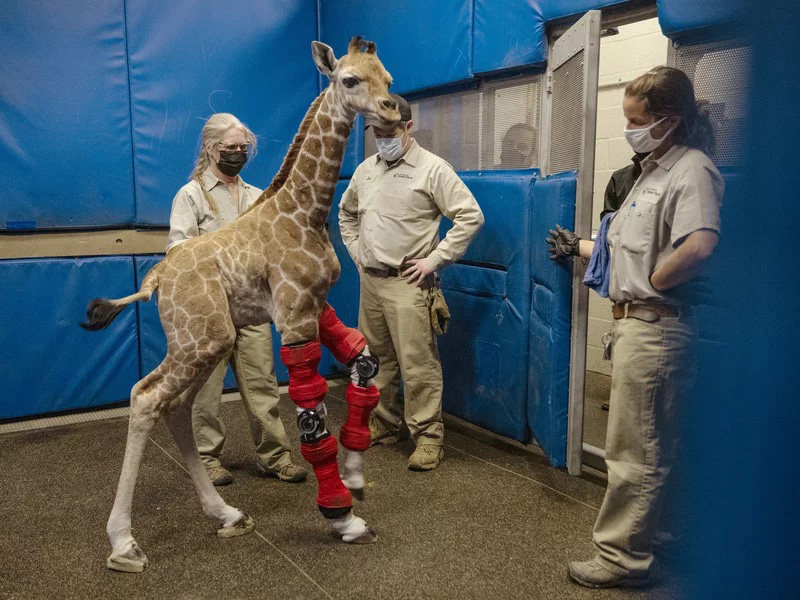
Msituni was born with a disorder that caused her legs to bend improperly.
San Diego Zoo Wildlife Alliance
☝️ Meet Msituni.
The baby giraffe was born Feb. 1 at the San Diego Zoo Safari Park with a front limb bending the wrong way. Fearing she could die, zoo officials reached out a local orthotist named Ara Mirzaian, who helped fit her with leg braces. Afterward, Mirzaian, who had never worked with animals, sounded like he was the one who’d been saved. “It’s one of those things that is a once-in-a-lifetime opportunity,” he said. “And you just have to savor the moment.” A.P. | Patch
California archive
12
The first ostriches arrived in Southern California in 1883, brought by a British naturalist named Charles Sketchley, who hoped to make his fortune supplying their feathers to the fashion industry. The long-necked birds transfixed locals, who began showing up at Sketchley’s property near Anaheim in large numbers. He started charging 50 cents for admission, kick-starting what would become an early iteration of California’s first amusement parks, according to the historian Nathan Masters. The New York Times and Chicago Daily Tribune ran articles. “To those who are unfamiliar with the appearance of an ostrich,” wrote the Tribune correspondent, “it may be described as resembling nothing more than a large gas pipe set on tall and muscular legs.”
Other entrepreneurs took note, and by 1910 there were 10 ostrich farms across Southern California. One of the most popular was Cawston Ostrich Farm in South Pasadena, which offered ostrich rides and sold ostrich-feathered hats and fans. Over time, however, Angelenos drifted toward other diversions, and the ostrich farms faded away. The Los Angeles Ostrich Farm was the last to close in L.A. in 1953. Disneyland opened two years later. KCET
Below, see a selection of photos from Southern California’s ostrich heyday.
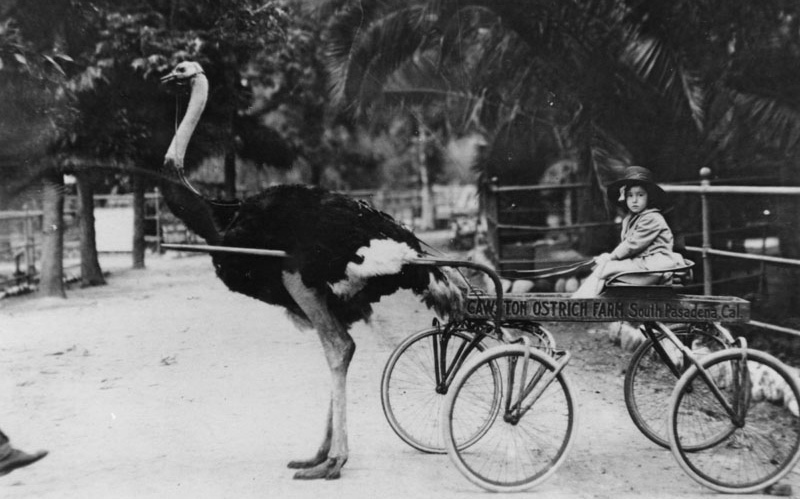
A child at the Cawston Ostrich Farm in South Pasadena, circa 1925.

Ostriches held in a pen in Pasadena, circa 1886-1894.

A baby ostrich in a bow tie.
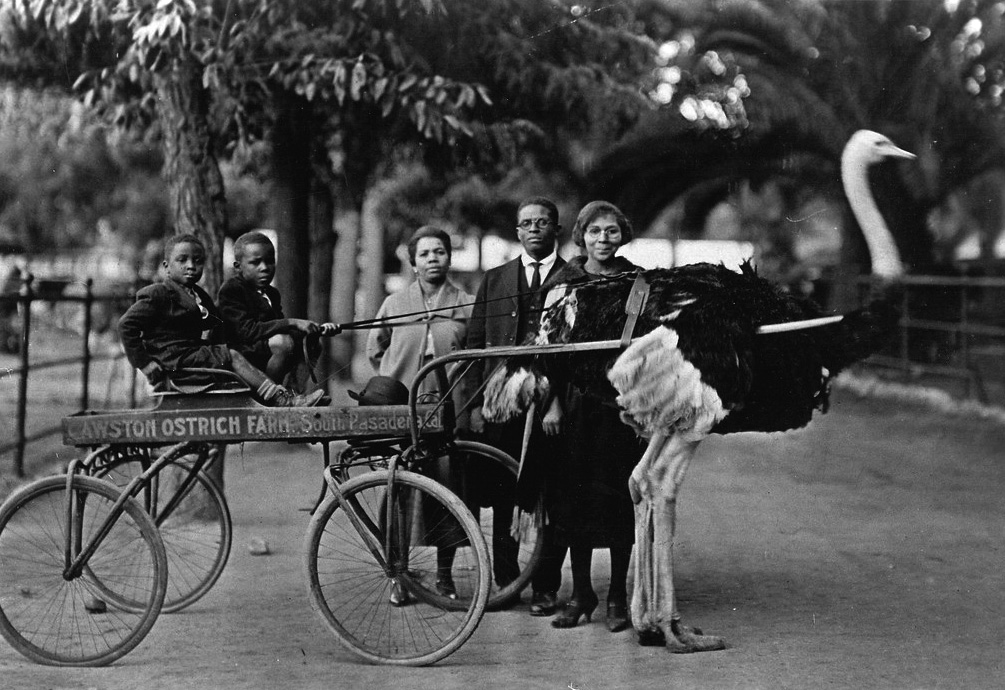
The Lundy family in the early 1900s.
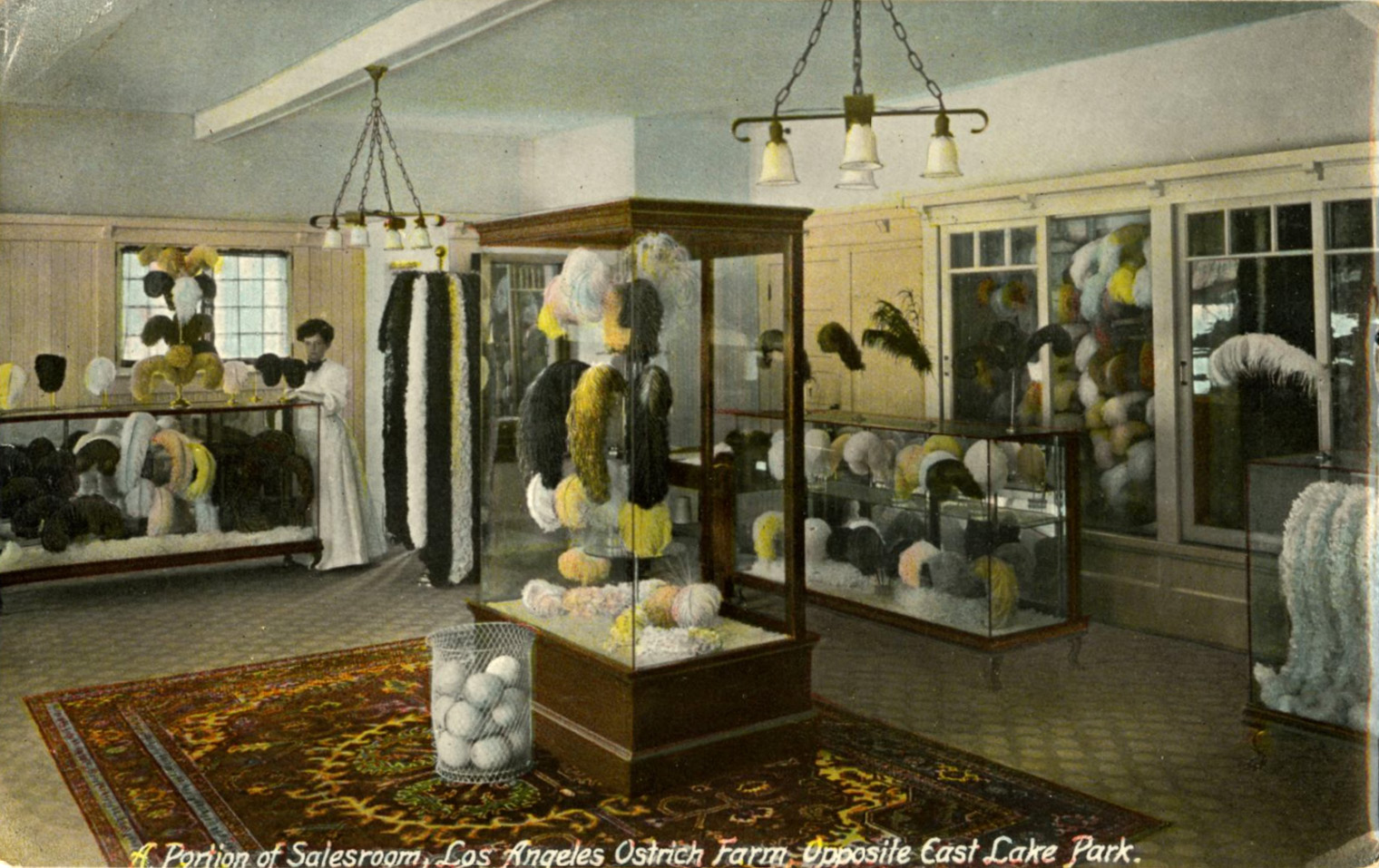
A circa-1910 postcard showed the feathery fashions on offer at the Los Angeles Ostrich Farm.
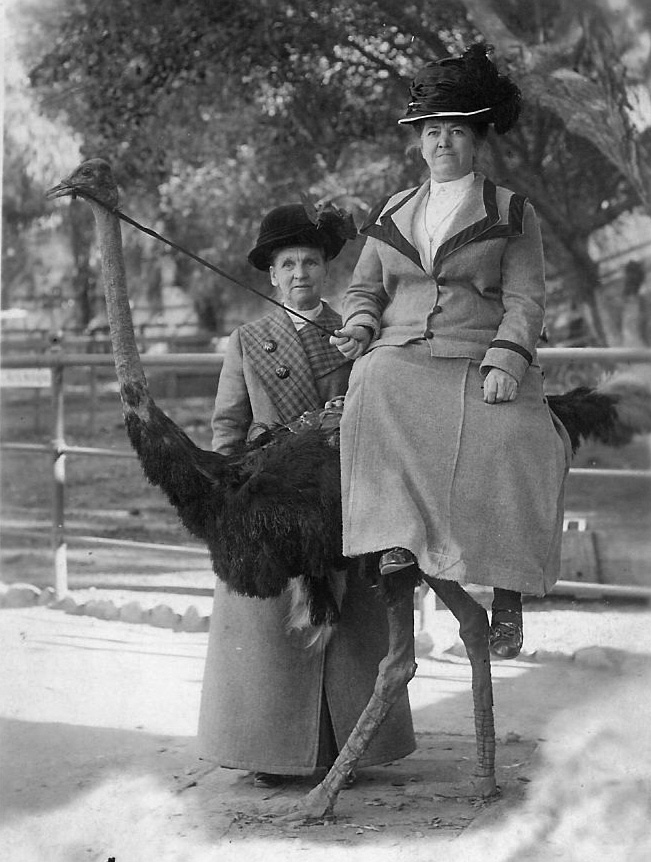
Visitors to Cawston Ostrich Farm.
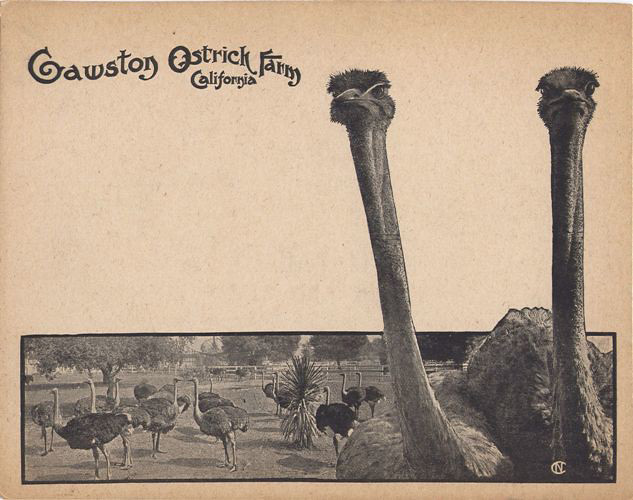
A postcard for Cawston Ostrich Farm, circa 1896-1914.
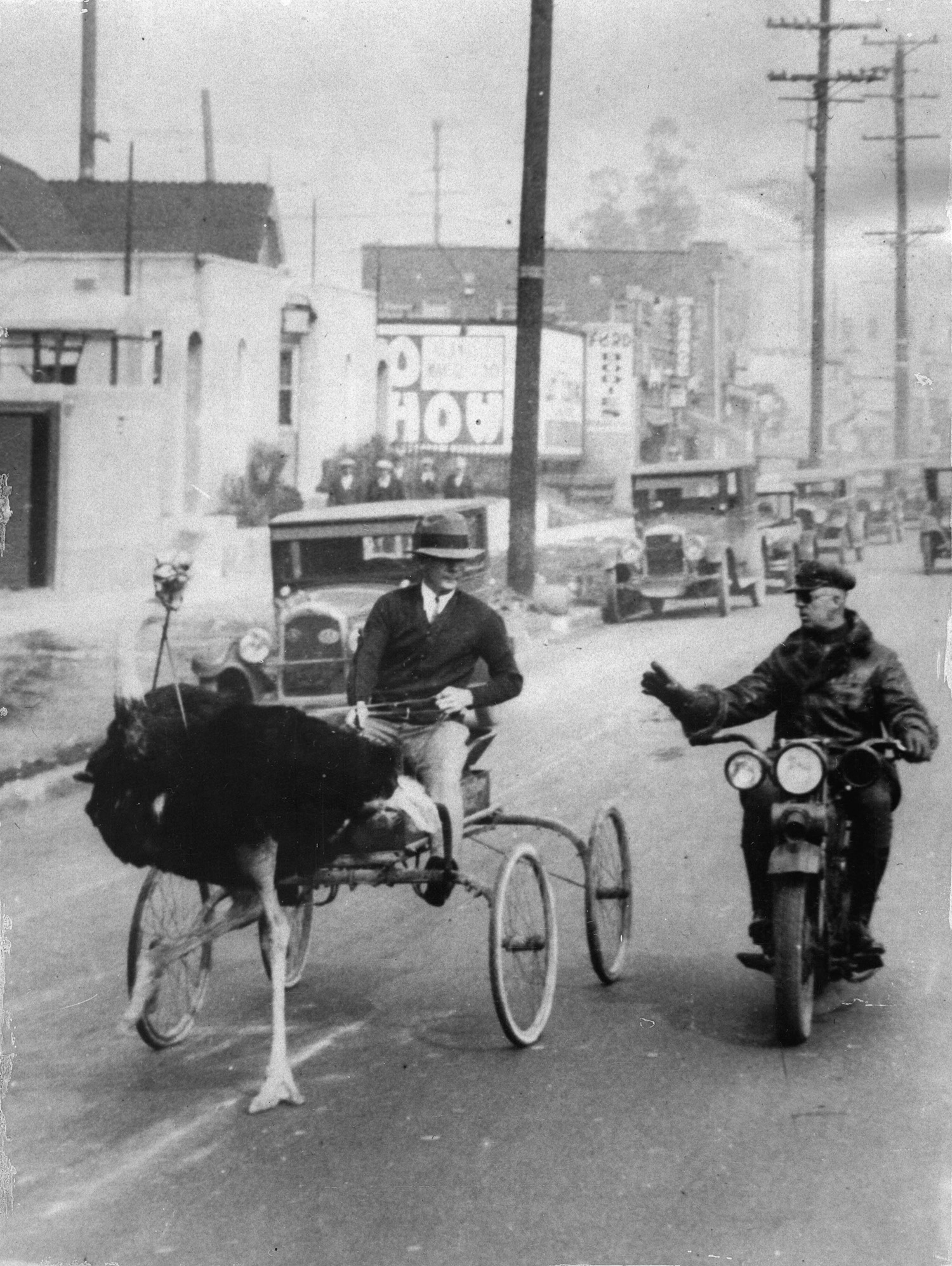
An ostrich carriage was stopped by a police officer in Los Angeles, circa 1930.
Hulton Archive, via Getty Images
Wake up to must-read news from around the Golden State delivered to your inbox each morning.